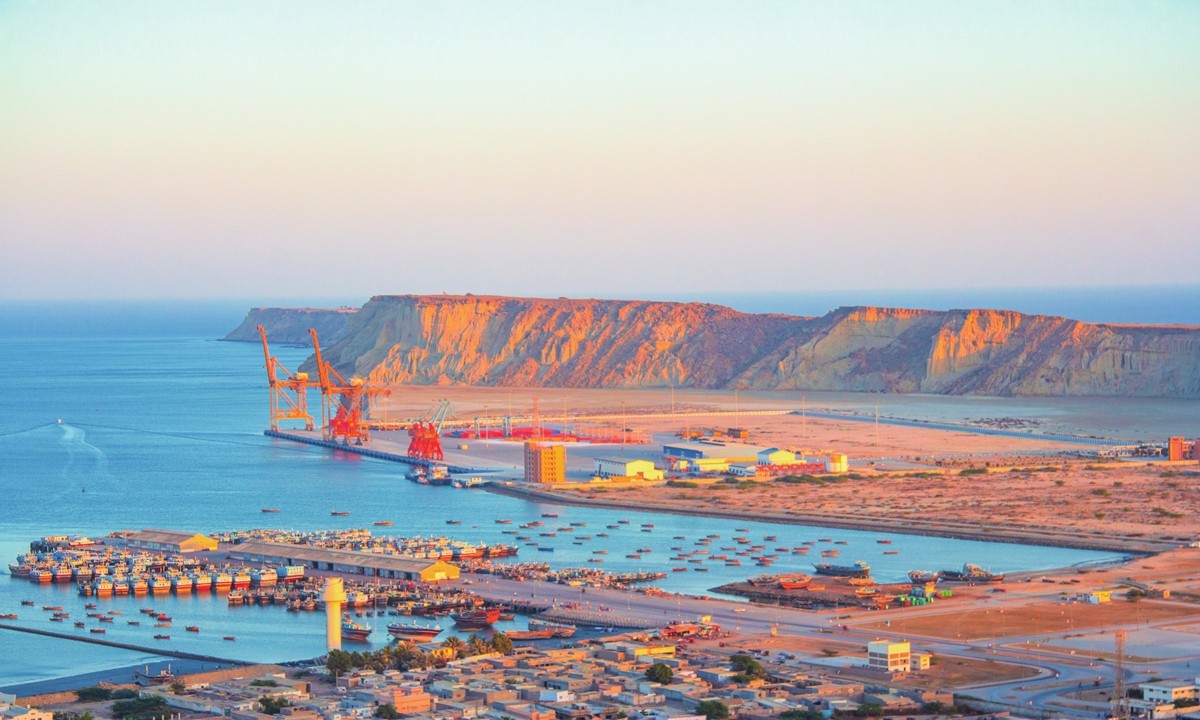As Pakistan’s security situation improves, Chinese projects are under strict protection: Pakistani media members

Although the domestic security situation was rough about five or six years ago, it has largely been improved in recent years, especially with extra protection measures taken to ensure the security of Chinese projects and people in Pakistan, the Global Times learned from the visiting delegation members of Pakistani media and think tanks.
“There have been some concerns over security, but the government has taken very strong steps in ensuring the security of our Chinese brothers who are working in Pakistan with us,” said Nouman Rashid, media advisor of GNN News. “The military has also been called in for assistance, providing security protection to all the Chinese nationals and installations.”
Rashid said that he is very hopeful that serious security incidents involving Chinese nationals will not happen in the future.
Although terrorist activities have been a problem in Pakistan, now an official department has taken over the problem using strong measures, Moiz Farooq, executive editor of Daily Ittehad Medis Group, told the Global Times.
Farooq said that some terrorist activities are supported by Pakistan’s rivals who always intend to sabotage the friendship between China and Pakistan.
“These organizations believe that if they can hurt the Chinese nationals in Pakistan with terrorism, the BRI and CPEC projects can be compromised, which is their goal,” he said. “But this is not likely to happen.”
The influence of foreign power behind the security concerns in Pakistan was also brought up by Naz Parveen, editor of Daily Kasoti and the Window of China. “Some superpowers want to make a hindrance and make hurdles in the way of development in Pakistan’s future,” she told the Global Times.
Parveen, nonetheless, also noted that the security situation has become much better than it was about five or six years ago, and that neither the Chinese nor Pakistani government has given up on cooperative projects, and they will not be deterred by these terrorist activities.
In the past few days, several overseas media outlets have reported that a commander of the Baloch National Army that had surrendered himself to the Pakistani government had disclosed that India has been secretly supporting terrorist activities in Balochistan and financing Balochistan separatist forces, while Baloch officials said that India’s support and use of terrorists is the main reason behind the increasing terrorist activities in the province.
On Wednesday, Chinese Foreign Ministry spokesperson Mao Ning said that the Ministry is aware of these reports.
Terrorism is humanity’s common enemy, said Mao on Wednesday’s regular news conference. “China firmly opposes double standards on counterterrorism. To support and use terrorist groups and let them thrive out of one’s selfish interests at the expense of international and regional security benefits no one and will only backfire.”
China stands for strengthening counterterrorism cooperation among all countries to jointly fight all forms of terrorism, Mao said.
Syed Kalbe Ali Naqvi, a senior reporter of Dawn newspaper who has dedicated his career to reporting anti-terrorism in Pakistan, pointed out that the vast land border that Pakistan shares with Afghanistan has been an unstable factor for the security situation in Pakistan.
With the insufficient border control power, foreign fighters can enter Pakistan and launch attacks, he noted. “They want to destabilize Pakistan, with some of them working with external powers from other countries.”
Ali urged that much more transparency of information should be shared between different institutions in the country and internationally to tackle this problem.
“When it comes to border security and terrorism, many decisions are always made in closed doors,” he said, noting that the terrorist organizations can take advantage of the information gap.
In terms of the public perception and attitude toward the BRI and CPEC projects, the Pakistani media members stressed that there is one important aspect to be understood that the Pakistani people and the Pakistani government think of the BRI and CPEC projects as very beneficial for the development of the whole world.
China has been doing a tremendous favor to Pakistan with the CPEC and BRI projects, said Rashid. “No matter how many problems would come up or which Pakistani political party would come into power, these projects are of the people and for the people.”
The 15-member Pakistani delegation of media and think tanks visited China from December 6 to 16, travelling from Beijing to Chengdu, Southwest China’s Sichuan Province, as well as Kashi Prefecture and Urumqi in Northwest China’s Xinjiang Uygur Autonomous Region.






